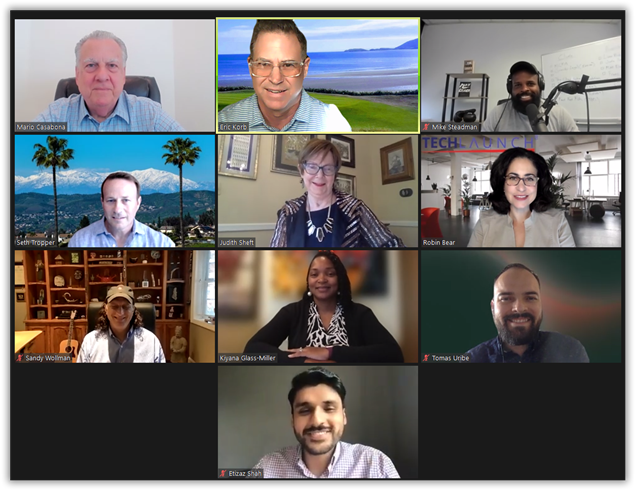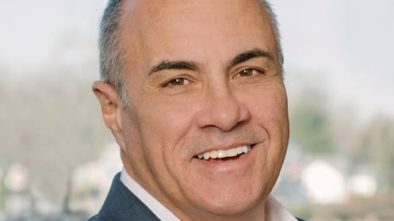Queens-Based EZ Health Takes September BullPen
At the September TechLaunch BullPen pitch event, three startups competed for $15,000 worth of advisory services and a chance to pitch to JumpStart NJ Angel Network (New Brunswick) and Tech Council Ventures (Summit). The startups had received mentoring prior to the event.
Winning this edition of the BullPen was EZ Health (Queens, NY), a telehealth platform that makes healthcare accessible to non-English speaking patients. EZ Health connects patients with doctors who speak their native languages, enabling them to conduct video visits with the doctors within its platform. The company was mentored by Perri Richman.
EZ Health
EZ Health founder and CEO, Etizaz Shah, pointed out that “the biggest issue that we are facing in healthcare is communication barriers. And with COVID, as healthcare has moved majority online, most of these language barriers have increased substantially.” Some 100 million Americans speak a language other than English. The U.S. is spending $6.8 billion annually on overcoming communication barriers. Yet, patients who don’t speak English are still three times more likely to suffer a preventable adverse event, he told the panel.
During the audience question-and-answer period, Shah was quizzed about his business model. He stated that a lot of medical decisions are driven by health insurance, and part of that is how a company will be reimbursed for its services. The amount his company plans to charge is market standard, or even less than what his competitors are charging, he said. EZ Health “started our credentialing process with 15 insurance companies. …We plan to reduce this [the price] more for the people who do not have insurance or who cannot afford insurance, so that they can afford this.”
A member of the panel of judges, Kiyana Glass Miller, who is an IT professional, angel investor in the Black and Latino Angel Investment Fund and information business services delivery lead at Mondelēz International (East Hanover), told Shah that his presentation was clear, but left her with many questions. She advised him to include in his presentation something about how the company recruits the doctors and hospitals. She also wanted to understand where in the process the translation happens.
Panelist Seth Tropper, a New Jersey entrepreneur who is now head of strategy and partnerships at HP for healthcare personalization, commented that Shah may have underestimated the competition in the telehealth field, since so many companies are getting into this area. He suggested that other companies could be going after EZ Health’s niche.
Stereotheque
Another competitor was Stereotheque (New York), a collaboration tool for creatives that connects businesses with on-demand, remote creative teams at a what cofounder and CEO Tomás Uribe said was a fraction of the cost and time. Their platform includes everything one needs to manage multiple projects and deliverables, collaborators and seamless payments. Uribe was mentored by Ratan Agarwal.
To start his pitch, Uribe asked, “Where do you go when you need to hire on-demand creative teams when from two to five people need to collaborate effectively to get the job done? Where do you find them? How do you vet them? Is there any way to make sure that they will actually work well together?” The Stereotheque platform takes care of everything, including payments, Uribe noted. He pointed out that small and medium-sized businesses today typically spend over $2,000 and over four months just to find a candidate, not even to get the work done; and that amounts to a total loss in the U.S. of over a billion dollars per year, he claimed.
In response to an audience question, Uribe acknowledged that the company offers more of a specialized, project-management tool. He said the company is building off of what other incumbents in the labor marketplace space have done. Panelist Judith Sheft, executive director of the New Jersey Commission on Science, Innovation and Technology, commented that she would have liked to see a slide with examples of the kinds of projects that have been completed on the platform. Also, it would be great to be able to specify the companies or the kind of companies that Stereotheque has worked with.
IRONBOUND Media
Mike Steadman presented his company, IRONBOUND Media (Newark), a podcast production studio and independent network that helps veteran-owned businesses engage their perfect customers through “dog whistle branding.” The company accomplishes this by helping veteran-owned businesses create, distribute and grow branded podcast series. Steadman was mentored by Peter Kestenbaum.
In his pitch, Steadman said that while “there are a lot of jobs being created right now,” unfortunately, “being ex-military is not exactly ideal for a lot of them, particularly in the tech industry. In addition, also thanks to technology, although there’s an abundance of opportunity available for entrepreneurs, this always hasn’t translated well to the veteran entrepreneur community. There’s only 2.5 million veteran-owned small businesses, and many of them struggle to convey their values, their messaging and their messaging online in an increasingly noisy online world, which makes it difficult to stand out from the crowd.”
He continued, “We specialize in helping veteran-owned businesses create, distribute and grow branded podcasts, which we refer to as ‘dog whistles.’ … The difference between a dog whistle and a regular podcast is that it doesn’t matter how many downloads you have, whether that’s 10,000 or 20. What matters is, ‘Do you know who your perfect customer is?’”
In response to an audience question about dog-whistle marketing, Steadman said, “We have a proprietary framework that we use to build out our podcast series that allow our audiences to engage with their perfect customer. There are a lot of vanity metrics within podcasting right now. And while a lot of people are chasing downloads, the real value of a podcast is who you’re able to get on the platform, and who you’re able to build a relationship with. … We’re able to walk our clients through our dog-whistle-branding process, to put them in the best position to succeed, to get that perfect customer on an interview and also build an audience with that perfect customer.”
Panelist Sandy Wollman, cofounder and managing director of Westchester Angels (White Plains, N.Y.), commented about the slides. “Sometimes less is more. You really want to have bullet points. Pictures on the slide should not take away the audience’s attention from what you’re speaking about.” He said that some of the slides were too busy and, “as I was trying to read them, they were taking my attention away from what you were speaking about.”
He added that “$250,000 is not a large angel raise. We like to see startups raise enough money that’s going to last them a year or a year and a half, because raising money from us angels, you know, we’re a pain in the ass.”
TechLaunch (West Orange) was founded by Mario Casabona. The BullPen event was moderated by Robin Bear, founder of Robin Bear Consulting (Madison), and produced by Eric Korb, chief administrative officer at G William Group (Edison), who both also mentor startups at TechLaunch. Gibbons (Newark) law firm; Withum (Princeton) advisory, tax and accounting firm; Gearhart Law (Summit); and Casabona Ventures (Kinnelon) provide the in-kind advisory services to the BullPen winning teams.
The next TechLaunch BullPen is scheduled for February 9, 2022. Startups can apply to pitch here.




